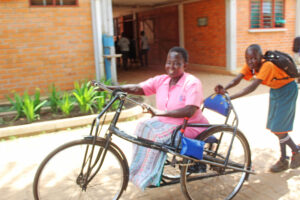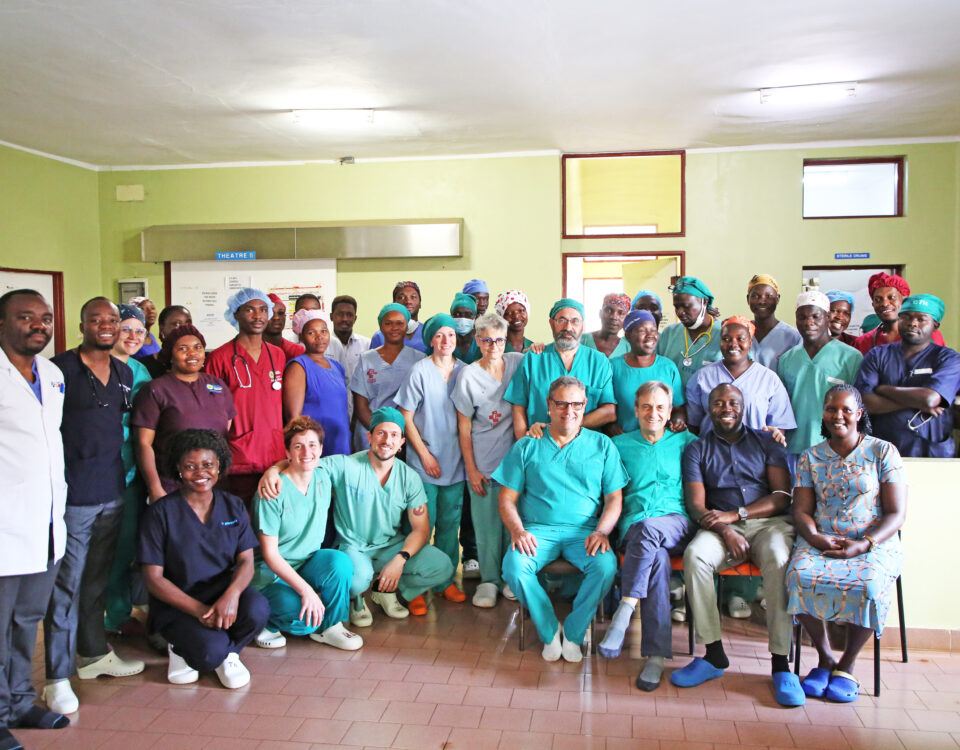It’s remarkable how fate often leads us to purpose in places we never imagined—far from the soil that nurtured our first steps. Sometimes it’s war, sometimes migration, or circumstances beyond our control. But as humans, we adapt. We find our path. We make meaning out of the chaos.
Laker Eugena’s journey is one such story that began in Moyo, a town in the western part of the Nile. At a very young age, she was forced to flee her home due to the 1978 overthrow of Idi Amin. Her search for safety led her to Gulu, where she found refuge at Lacor Hospital, under the care of the Comboni Sisters—the only place that remained open and safe during the series of conflicts that rocked northern Uganda.
Though she came seeking shelter, God had other plans for Laker.
Before her displacement, Laker had completed Primary Seven in Moyo. She had already shown a strong interest in hands-on skills like tailoring— a skill that would prove even more essential in the years ahead.
When she arrived at Lacor, her abilities weren’t just preserved, they were nurtured, sharpened, and transformed. She was enrolled in courses in tailoring and garment-cutting. What seemed like a temporary stop in her life soon became the foundation of her calling.
Among the sisters, she met Sister Miriam, a mentor who would shape her future. Laker’s hands became tools of healing. Not through medicine, but through fabric. She sewed uniforms for nurses and doctors, clinical garments, hospital bed sheets, and decorations. Her work clothed the caregivers of the hospital with dignity and pride.
“This is the happiest part of my life,” Laker said with a smile. “Dressing and making the people who care for others look smart. As a child, I wanted to be a nurse, but I didn’t become one. Still, through my work, I feel I am part of their mission.”
One might ask why she didn’t pursue nursing, her childhood dream. The answer lies not just in war, but in a deeper battle—polio. The disease left her physically disabled, unable to walk. But it never dimmed her spirit. She adapted, and she persevered. Sister Miriam didn’t give up on her. Lacor Hospital didn’t give up on her. And most importantly, Laker never gave up on herself.
Today, Laker Eugena has devoted over 47 years of her life to Lacor Hospital, a lifetime of service stitched with faith, discipline, and purpose. Her story is not merely one of survival, but loyalty, and commitment to a cause greater than herself.
What began as a place of refuge became the foundation of her identity, a place where she found dignity in work and family in the community.
“I have a home and a life here,” she said. “Because of my good work, I was allowed to stay and continue even after the war. Lacor became more than a hospital to me, it is the one place that gave my life back its meaning.”
Laker spoke with pride when she tells off the fruits of her labor—not wealth, not recognition, but the lives she’s been able to uplift. With her modest earnings from work, she took on the responsibility of raising and educating her sister’s child after the family was fractured by conflict and hardship.
Through years of careful saving, sacrifice, and perseverance, she supported him all through university and graduated with a Bachelor’s degree in Medicine and Surgery—becoming the kind of healer she once dreamed of becoming herself.
“When he wore that white coat on his graduation day,” she recalled. “I felt like I had fulfilled my dream through him. I may not have treated patients with medicine, but I gave the world someone who will. That is enough for me.”
What makes Laker’s story so compelling is not just the adversity she overcame, but the purpose she carved from it. She turned pain into persistence, limitation into service, and displacement into home. Her impact doesn’t wear a title or come from a podium—it lives quietly behind a sewing machine, in the steady hands of someone who never stopped showing up.
In a world often defined by displacement and struggle, sometimes, we find our greatest fulfillment far from where we began—not despite hardship, but because of how we rise through it.



